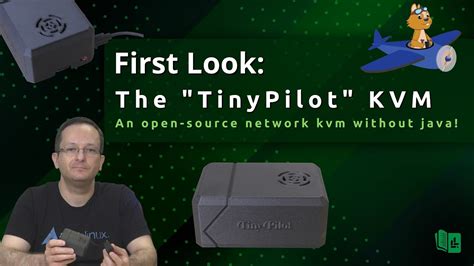Selling a business is a monumental decision, both emotionally and financially. Recently, the founder of TinyPilot—a bootstrapped hardware company—decided to sell, marking the end of a significant chapter in his entrepreneurial journey. This article explores the motivations behind that decision, the multifaceted nature of running a hardware startup, and what lies ahead for the founder. The sale has brought not just financial closure but also a newfound direction and clarity in the founder’s career path.
One noticeable aspect from the founder’s reflections is the sheer number of challenges faced in hardware entrepreneurship. Supply shortages, manufacturing errors, lost shipments, and design mistakes can cripple a business. Unlike software ventures, hardware startups contend with tangible, material risks that demand meticulous planning and a level of resilience that borders on sheer luck. For instance, during TinyPilot’s early years, a critical part could have been lost in shipping, delaying operations for months. These nightmares underscore why hardware ventures are often more volatile and why founders might need specialized expertise or significant venture capital backing.
The sale of TinyPilot might surprise some, especially given that the company had reached profitability. However, the intricacies of a hardware business mean that even a profitable venture can be incredibly taxing. The founder pointed out that while the company had achieved $1M in annual revenue, the sale was pegged at $600k, a 2.4x multiple of earnings. This might seem low compared to SaaS businesses, which often sell at higher multiples. The constant pressure to manage supply chains, vendor relationships, and manufacturing issues was a significant source of stress that occupied much of the founder’s mental space. Furthermore, given the tumultuous nature of hardware, it’s clear why the founder was inclined to opt for a quick exit and focus on ventures with less operational friction.
The comments from the community highlight an essential point: not every founder is motivated purely by financial gain. Many are driven by the desire for autonomy, the excitement of building something new, and the freedom to pivot and explore. The founder of TinyPilot exemplifies this ethos, expressing a strong inclination towards bootstrapping another venture, albeit in the software or educational space. His brief stint in educational products was particularly enjoyable, and with less associated risk than hardware, it offers a promising avenue for future pursuits. The lessons learned from building TinyPilot—especially the importance of mitigating risks and the challenges of scaling hardware—are invaluable as he charts out his next venture.
There’s an important discourse about the valuation of hardware versus software businesses. SaaS ventures often enjoy higher multiples due to their minimal overheads and consistent recurring revenues. As noted by the founder and commentators, the high-interest rates also influence valuations. With hardware, the expenses related to design, production, and logistics devour a substantial part of the revenue, which impacts profitability and, subsequently, the valuation. Future entrepreneurs can glean valuable insights from this experience: investing in software where the risks are more predictable might offer a better return on investment.
As the founder steps into the next phase of his career, he brings with him a wealth of experience. Bootstrapping a hardware company from zero to a million in revenue is no small feat. The meticulous attention to operational details, the ability to navigate through countless potential pitfalls, and ultimately, making the hard decision to sell, paints a picture of resilience and strategic acumen. This experience will undoubtedly inform his approach to future ventures, allowing him to build on his strengths while avoiding past pitfalls. The TinyPilot journey adds a rich chapter to his entrepreneurial narrative, and as he transitions to new beginnings, his story remains a beacon for budding entrepreneurs in both hardware and software domains.
In conclusion, selling TinyPilot was about more than just the money. It was about aligning with personal goals, reducing stress, and opening up new avenues for creative and fulfilling projects. As the founder moves forward, one thing remains clear: his journey is far from over. With plans to venture into educational products and SaaS, we can be sure to expect more innovative solutions from him in the future. For now, TinyPilot stands as a testament to what can be achieved with determination, even in the face of almost insurmountable odds.


Leave a Reply